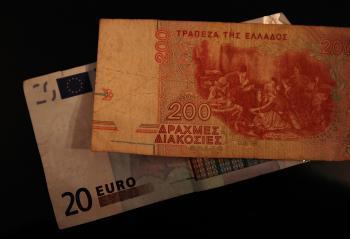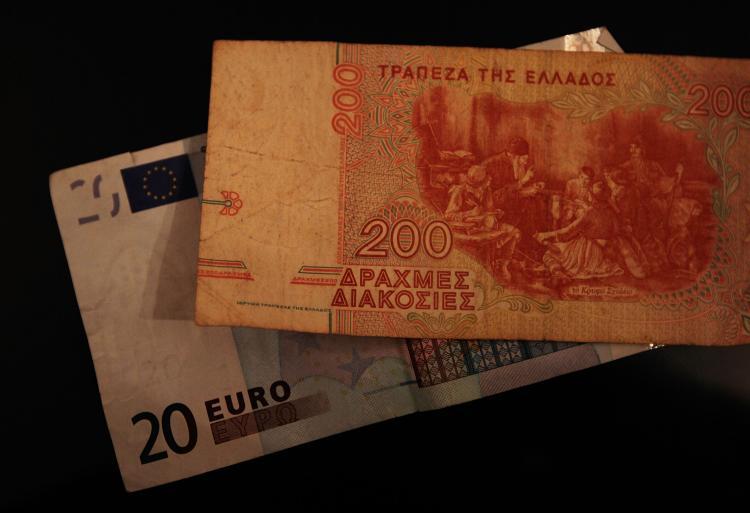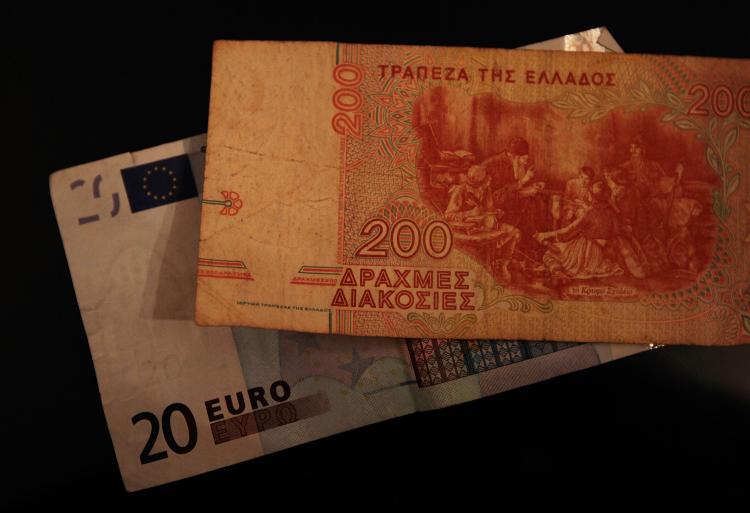MUNICH—Greece continues to be the major source of woes for the European Union, as its debt crisis keeps spreading significant repercussions for the euro currency.
Last Friday, the euro hit its lowest point, losing 4.3 percent against the dollar in just one week’s time. It slid to $1.27 points against the dollar, which is a drop of 15 percent since November 2009. As a result European stocks have plummeted to their worst performance in 18 months, with Stoxx Europe 600 Index dropping 8.8 percent to 237.18.
On Sunday, the EU leaders held an emergency meeting to address the fall of the euro currency and prevent its further downfall.
“Taking into account the exceptional circumstances, the commission will propose a European stabilization mechanism to preserve financial stability in Europe. It will be submitted for decision to an extraordinary ECOFIN meeting that the Spanish presidency will convene this Sunday, May 9,” reads an official EU statement.
“When the markets reopen Monday, we will have in place a mechanism to defend the euro,” said French President Nicolas Sarkozy. “If you don’t think that’s significant, you haven’t been to many EU summits.”
The safety mechanism details will not be disclosed until Monday, May 10.
“We are all aware that we are up against a very serious situation in the eurozone and we are going to confront it together,” said Herman Van Rompuy, the president of the European Council.
In addition to the safety mechanism, the EU has agreed to issue a bailout loan to Greece, amassing a sum of 80 billion euros (US$101 billion), with Germany taking the lion’s share of 22.4 billion euros ($28.4 billion). The International Monetary Fund will additionally give another 30 billion euros (US$38 billion) to Greece.
Greek Prime Minister George Papandreou was pleased with EU’s active support and ruled out any further cuts in public spending besides those that were already promised as part of the austerity measures program that has caused massive violent protests in the last few months.
He praised the EU summit’s mission to “reaffirm our confidence in our economies and our common currency and this I believe is a very important message for the global economic recovery.”
On Saturday, a survey showed that most Greeks support further protests against the austerity measures. Many investors are concerned that prolonged protests could weaken Papandreou’s resolve to follow through on the promised cuts passed by the Greek Parliament on Thursday.
Angela Merkel, a firm supporter of the Greek bailout fund, is having regional elections on Sunday that could well spell trouble for her as most Germans view the euro fund unfavorably.
“The election is extremely important because it is the first vote after the federal election and the poll in this big German state is being seen as a test for her,” said Gerd Langguth, who is a political scientist at Bonn University and biographer of Merkel.
Last Friday, the euro hit its lowest point, losing 4.3 percent against the dollar in just one week’s time. It slid to $1.27 points against the dollar, which is a drop of 15 percent since November 2009. As a result European stocks have plummeted to their worst performance in 18 months, with Stoxx Europe 600 Index dropping 8.8 percent to 237.18.
On Sunday, the EU leaders held an emergency meeting to address the fall of the euro currency and prevent its further downfall.
“Taking into account the exceptional circumstances, the commission will propose a European stabilization mechanism to preserve financial stability in Europe. It will be submitted for decision to an extraordinary ECOFIN meeting that the Spanish presidency will convene this Sunday, May 9,” reads an official EU statement.
“When the markets reopen Monday, we will have in place a mechanism to defend the euro,” said French President Nicolas Sarkozy. “If you don’t think that’s significant, you haven’t been to many EU summits.”
The safety mechanism details will not be disclosed until Monday, May 10.
“We are all aware that we are up against a very serious situation in the eurozone and we are going to confront it together,” said Herman Van Rompuy, the president of the European Council.
In addition to the safety mechanism, the EU has agreed to issue a bailout loan to Greece, amassing a sum of 80 billion euros (US$101 billion), with Germany taking the lion’s share of 22.4 billion euros ($28.4 billion). The International Monetary Fund will additionally give another 30 billion euros (US$38 billion) to Greece.
Greek Prime Minister George Papandreou was pleased with EU’s active support and ruled out any further cuts in public spending besides those that were already promised as part of the austerity measures program that has caused massive violent protests in the last few months.
He praised the EU summit’s mission to “reaffirm our confidence in our economies and our common currency and this I believe is a very important message for the global economic recovery.”
On Saturday, a survey showed that most Greeks support further protests against the austerity measures. Many investors are concerned that prolonged protests could weaken Papandreou’s resolve to follow through on the promised cuts passed by the Greek Parliament on Thursday.
Angela Merkel, a firm supporter of the Greek bailout fund, is having regional elections on Sunday that could well spell trouble for her as most Germans view the euro fund unfavorably.
“The election is extremely important because it is the first vote after the federal election and the poll in this big German state is being seen as a test for her,” said Gerd Langguth, who is a political scientist at Bonn University and biographer of Merkel.






